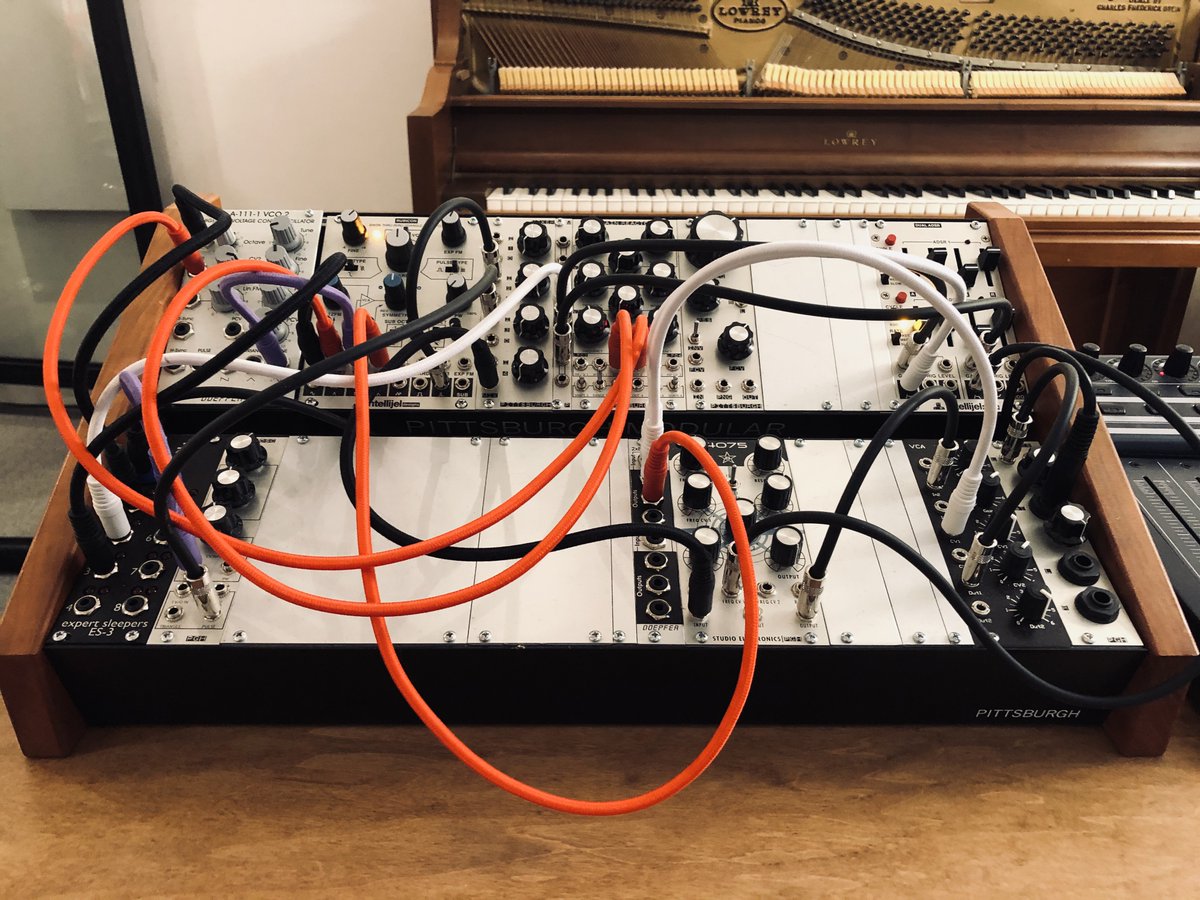The Synthesizer Conundrum - a thread about music and meaning
I love synths. This is my Eurorack modular. It& #39;s not huge, but it can do some crazy things, especially in combination with software.
Anyone who gets interested in synthesizers encounters a conundrum. Even a basic synthesizer is an amazing instrument. The sounds it creates are dazzling. Working with it is a delight (and addictive).
There is always a heady moment when you& #39;re playing around with a synth that you feel a musical revolution must be just around the corner. Bold, wild synth vistas could dominate the musical horizons!
And perhaps you feel for a moment that synthesizers should have revolutionized music more than they have. Why haven& #39;t they?
Sure, synths are everywhere now, but they haven& #39;t come to dominate music. They& #39;re always at the margins. Pop is full of synths, but the VOICE dominates, and the GUITAR is still #2.
Synths are everywhere in film and TV too, but notice how mellow they are? How your ear doesn& #39;t go to the pads and FX, but to the PIANO melody or the superhero HORNS?
You might argue the problem is that synthesizers are not as detailed or subtle as acoustic instruments. I don& #39;t think that& #39;s the real problem, because, if you want them to be, synths can be very subtle indeed. And anyway, they have many, many other virtues. They& #39;re awesome.
The real problem, I believe, is this:
The actual sound of something (its detail, its novelty, its harmonic richness, even its "beauty") is
** not the most important thing about musical timbre. **
The actual sound of something (its detail, its novelty, its harmonic richness, even its "beauty") is
** not the most important thing about musical timbre. **
The most important thing is the *meaning* of the sound, which is bound up with its associations, the memories it triggers. Where have you heard this sound before in the world, and what does it mean?
As such, synthesized sounds just don& #39;t capture people& #39;s imagination as much as a synth enthusiast would expect, because people don& #39;t really have deep associations with those sounds.
A real instrument, like a trumpet or a string texture, sets off associations that penetrate deep into the world of human action: geography, history, topic, activity.
A trumpet is a mythic thing, of Campbellian, Jungian proportions. It is like a helmet or a lion - an object of infinite significance and limitless resonance.
We& #39;ve actually been here before, with the organ. A pipe organ is a fantastically varied instrument. Once again, anyone who works with one becomes dazzled. Such variety should surely be more appreciated.
And yet, the organ occupies only a relatively modest part of the musical imagination. And this is because organs *mean* a relatively narrow range of things, mostly connected with protestant churches and a particular historical period.
The sounds of a prinzipale or a flute stop are of no interest to the casual listener, because these distinctions have never acquired meaning in the world.
What& #39;s telling about this is the way synths are gradually acquiring more meaning now that they& #39;ve been around for many decades.
Synths can now conjure up the 40s, the 60s, the 80s, and to an extent, they are becoming gradually more important to listeners and their meanings are maturing.
This will continue to happen, I predict, and synths will come to have increasingly complex meanings, and gradually become more important to listeners.
But they will never match the deep significance of acoustic instruments, because their histories and geographies will never catch up.
A Novachord can take you back to 1950s Hollywood, but a war horn can take you back to the iron age, and this will always be the case. END

 Read on Twitter
Read on Twitter


